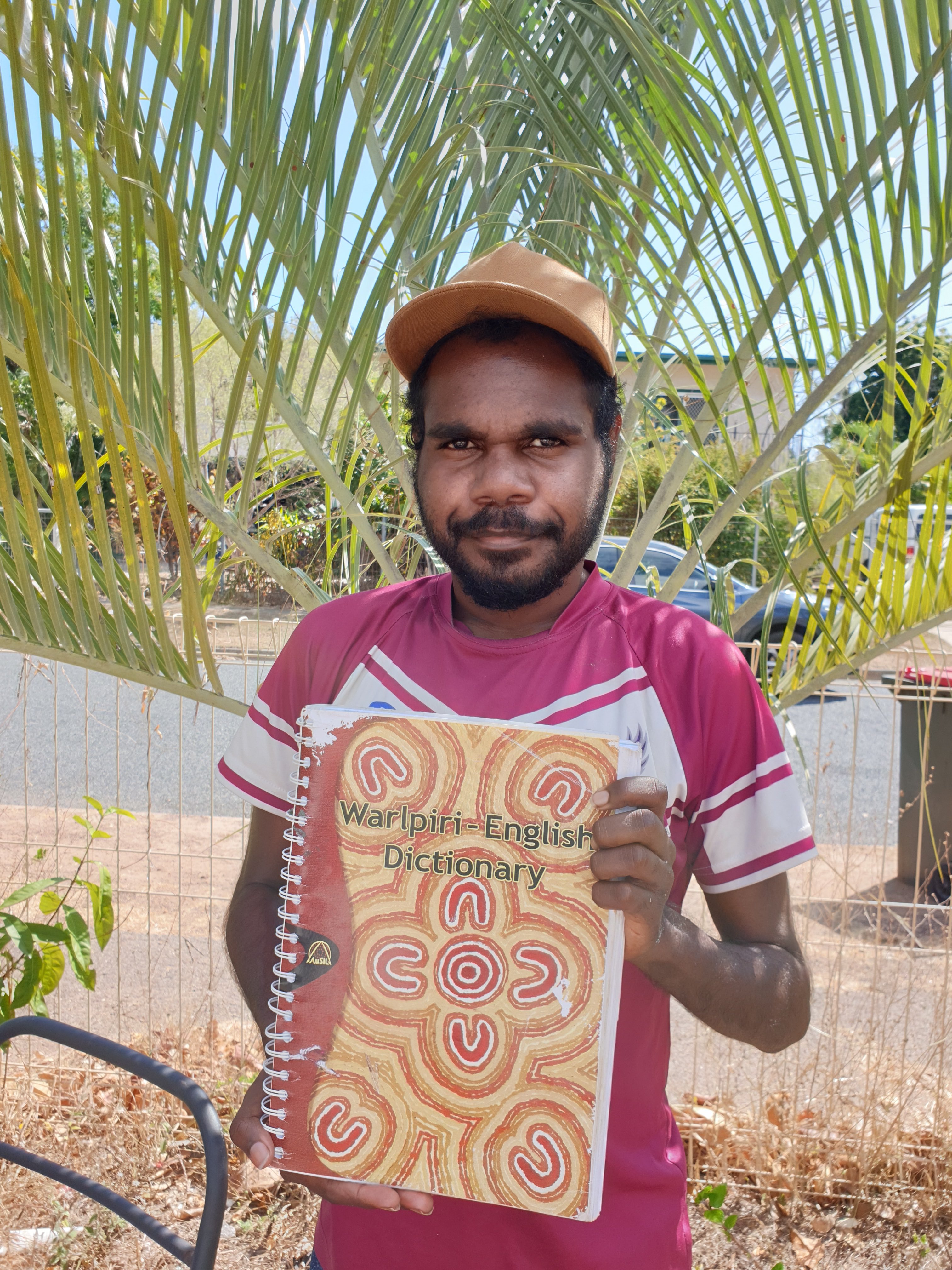Language with a Local - Warlpiri
DID YOU KNOW that there are 3,000 first language speakers of Warlpiri? It’s one of the largest Aboriginal languages spoken in Australia. To find out more about Warlpiri, Emily Ford had a chat with Nicholas Rennie, a Wantapari man and speaker of Warlpiri.
 Originally from Ali Curung, a community of about 450 people 400km north of Alice Springs, Nicholas now resides in Darwin and says language keeps him connected to his roots.
Originally from Ali Curung, a community of about 450 people 400km north of Alice Springs, Nicholas now resides in Darwin and says language keeps him connected to his roots.
“It’s important for young people and children to keep language and culture strong. To keep connections strong with family and with family from other communities,” he said.
“The kinship titles let people know how they’re connected with other people and the land. Language keeps you connected to your country. Language helps you to connect with the neighbouring lands, too.”
Alekarenge School is spelt correctly, whereas Ali Curung, the name of the community, is not. A lot of Aboriginal words sometimes have a few different spellings. This is because standard spelling rules for Aboriginal languages didn’t exist until the 20th century. Before that, non-Indigenous people were writing down their best guesses that often didn’t accurately represent how the words sounded.
Warlpiri has a dictionary with loads of words and example sentences online, and is available as a free app. Also, the New Testament of the Bible and bits of the Old Testament have been translated into Warlpiri that’s free to download. You can explore both to your hearts content!
Beginners Guide to Warlpiri
How are you?: Nguju (ngoo-joo)
Special acknowledgement to the Elders, speakers and custodians of Warlpiri, and thank you to Nicholas Rennie and Emily Rankine for sharing their story and language.
 Emily Tyaemaen Ford is a Rak Mak Mak Marranunggu woman from Kurrindju, who speaks two languages - Rak Mak Mak Marranunggu and Rak Marrithiyel. She is on the City of Darwin Youth Advisory Committee and works in Indigenous research at Northern Institue.
Emily Tyaemaen Ford is a Rak Mak Mak Marranunggu woman from Kurrindju, who speaks two languages - Rak Mak Mak Marranunggu and Rak Marrithiyel. She is on the City of Darwin Youth Advisory Committee and works in Indigenous research at Northern Institue.